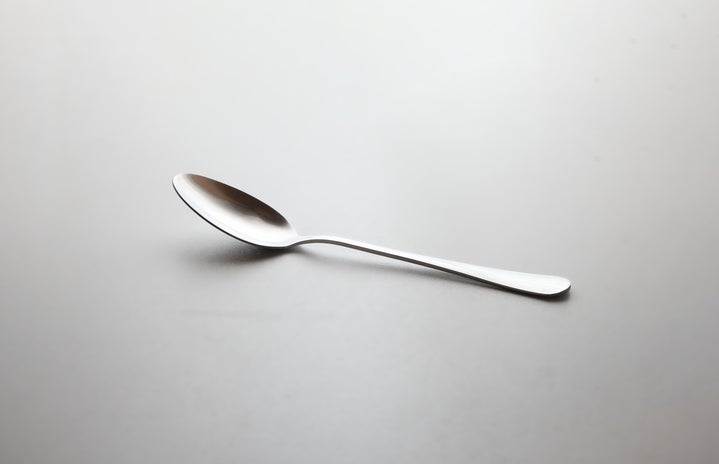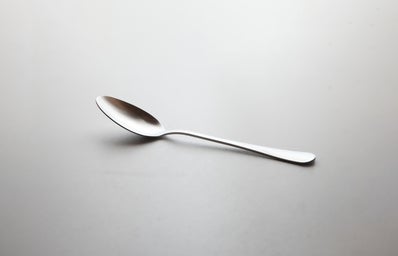When you have a chronic illness and/or disability, along with every other symptom you have, you also tend to have lower energy levels than the average person. As someone who lives with such, I can greatly relate to having to plan my days around how much energy I have. I live with Lupus, an autoimmune condition that gives me muscle pain, joint pain, dry eyes, sun sensitivity, weak organs and much more. But the one that impacts me the most is fatigue.
The Spoon Theory is a metaphor coined by Christine Miserandino, who also has Lupus. She used it to describe the amount of mental or physical energy an individual has to partake in daily activity and tasks. It is a fantastic visual representation to illustrate the association between having a high number of spoons as having high energy, and low number of spoons as having low energy. Whilst she used it to describe her own energy levels as someone living with Lupus, it has now been used around the chronic illness and disability community to visually represent energy levels.
The concept is simple. One spoon = one task
Every single time you do an activity, you lose a spoon. Someone with a chronic illness and/or disability already wakes up with ‘low spoons’, meaning we have a very limited number of spoons to distribute between tasks during the day. That means a healthier person will wake up with more spoons than us, with more possibilities, whilst we need to use it as a way to plan our day, so we don’t become depleted too early before completing everything on our to-do lists.
In Miserandino’s theory, she had given her friend (who had asked about Lupus) 12 spoons. Every time her friend listed an activity, she took a spoon away from her. It meant by the time she listed activities just do that hypothetical morning (e.g., getting dressed, showering, blow-drying hair…), more than half of her spoons was gone. It made her friend realise how exhausting these activities could be on an individual, and why it is necessary to plan. By the time it got to one spoon, her friend had to decide on dinner plans. I can handle spontaneity just fine, but it proves why it’s so necessary for our lives to be somewhat calculated. If she cooked, she wouldn’t have the energy to clean up after, if she went out, she may be too tired to drive herself back home safely.
This is because for every activity, however big or small, we take a lot more energy to do them. Getting up isn’t just opening your eyes. For me, it’s waking up already in a horrible mindset because I didn’t sleep well the night before, which already contributes to low energy levels. It’s knowing the day will start off slow and energy might come and go. It’s giving yourself something to eat, because if I don’t, I won’t be able to take my medication because it’s so strong and there’s so much of it that it would give me a sore stomach if I took it without eating. And that’s just the first ten minutes of waking up.
For someone with a chronic illness, I do a lot, even with low spoons. I’m someone who doesn’t like to give up and will persevere even when I’m mentally and physically exhausted. It is definitely not a good trait to have, as I don’t know when to rest, but it does have some benefits. I’ve been told I’m a hyper-organised person and one reason for this is because I have low spoons. Every day, usually subconsciously, I plan out how I am going to schedule my day, what I would have energy for, what I don’t think is realistic to do. Unlike other people, I might have to mentally plan for when to take a nap, because when I say I’m tired, I mean so tired I actually have to fall asleep.
Having low spoons greatly affects my body. I can no longer handle difficult people wasting my time or burning myself out on a task (though nobody should do this!). I need to use my spoons efficiently and care more about them, so I don’t get consumed by people or tasks that do me more harm than good. At the end of the day, my health is the most important thing – and nothing, nobody, no activity is worth depleting my energy for without a positive outcome.
Overall, I felt Miserandino did an amazing job at illustrating the fatigue people with chronic illnesses/disabilities have and the impact it has on our bodies. There’s a lot of misunderstandings when we say we are tired – our entire generation is tired – but at the end of the day, our tiredness is different. Our tiredness affects what we can and cannot do and the theory is a perfect physical demonstration to explain how energy can literally go from 12 spoons to 0. Whilst it is not the most well-known theory for people who are more able-bodied, I think it is important to use it in discussion as a quick and simple way to be more understanding of people with chronic illnesses/disabilities.


